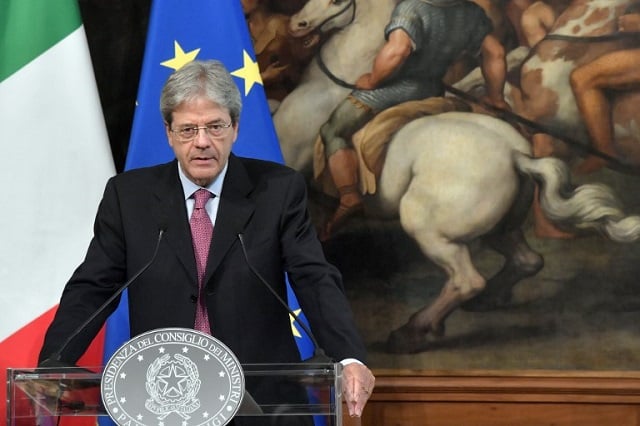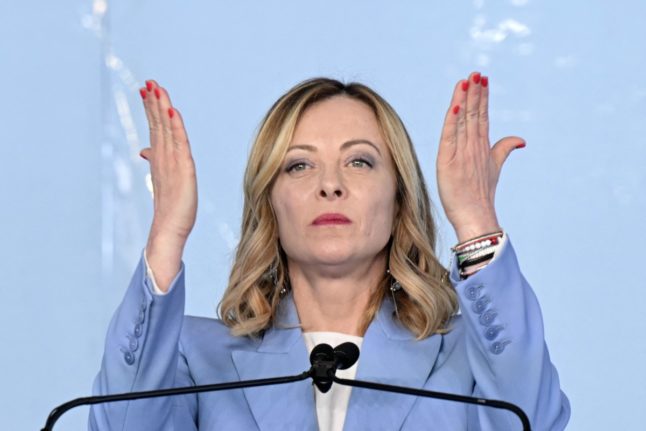Gentiloni's appointment as PM in December 2016 was widely seen in Italy as a containment move by the outgoing Matteo Renzi, head of the ruling Democratic Party (PD), who had just resigned after losing a referendum on constitutional reform.
Leader of the populist Five Star Movement Luigi Di Maio called the 63-year-old Gentiloni “Renzi's avatar” while Giorgia Meloni, head of the far-right Brothers of Italy party, which is in former prime minister Silvio Berlusconi's right-wing coalition, referred to him as “a puppet”. Few observers fancied his chances of lasting more than a few months in the hot seat.
But with the strong possibility of a hung parliament after the general election on March 4th, Gentiloni could remain in the top job far beyond polling day, something that would satisfy much of the Italian public. A recent poll carried out by Istituto Piepoli for daily La Stampa had Gentiloni with a 44 percent approval rating, well ahead of both Di Maio, his nearest rival, and Renzi.
Berlusconi's popularity has fallen, partly due to his sex scandals and legal woes, but his right-wing coalition is expected to pick up the most votes on election day. Barred from public office because of a fraud conviction, the 81-year-old Berlusconi remains a key figure at the head of his party and sees himself as a kingmaker.
- What to expect after the Italian election: a look at the possible outcomes
- Eight things that explain Silvio Berlusconi's enduring popularity
- Everything you need to know about the Italian election

Photo: Piero Cruciatti/AFP
Safe bet
A lover of tennis, opera and fine wine, Gentiloni comes across as the classic “signore”, an upper-middle class Italian male with refined tastes and a reserved manner that befits his aristocratic roots.
In his behaviour and mannerisms he couldn't be more different from motormouth Renzi, but the pair are long-time political allies and Gentiloni has largely followed the blueprint laid down by his predecessor. He was plucked from obscurity by Renzi to become Foreign Minister in October 2014, a move that raised eyebrows given Gentiloni's almost complete lack of ministerial experience at the time.
His previous experience in front-line politics amounted to two years as communications minister for Romano Prodi's 2006-08 administration, while his bid to become mayor of Rome in 2013 ended up with him finishing third of three candidates in the left's primaries.
However Gentiloni is widely seen as having done a good job as foreign minister as Italy played a proactive role on the world stage, and stood up for himself during a migrant crisis that only started to abate following a controversial agreement his government struck with Libya last summer.
READ ALSO: Who is Matteo Renzi? The former PM who swiftly fell from grace

Gentiloni has overtaken old boss Matteo Renzi (above) in popularity. Photo: AFP
Gentiloni's popularity runs in contrast to the fortunes of his own party, which with Renzi at the helm is leading a four-party centre-left coalition polling at around 27-28 percent of voter intentions — behind Berlusconi's right-wing grouping and the M5S.
Riddled with internal divisions and fresh from a left-wing rebellion that led to the formation of the breakaway Free and Equal party, the PD is looking likely to pick up a lower percentage of the vote than the 25 percent it gained in 2013 under Renzi's predecessor Pier Luigi Bersani.
Renzi-ite before Renzi
Gentiloni's relationship with Renzi is so close that in 2014 La Stampa wrote that he “was Renzi-ite before Renzi existed”. Since taking the top job Gentiloni has presided over Italy's best year-on-year GDP growth figures since 2011, with 1.5 percent growth posted in the first half of last year, and the figures for 2017 look set to beat forecasts of 1.1 percent.
These figures are still below the EU average, and the economy is still six percent smaller than it was in 2008. While results have not been spectacular, Gentiloni's steady hand has inspired faith in Italians.
However, unimpressed by the prime ministerial candidates offered up by all the main parties, voters are expected to turn out in lower numbers on March 4th than for any election since the Second World War.
READ MORE:
- Understanding Italy's Democratic Party
- Italy's parties have made big promises to voters. Do the numbers add up?
- The Italian politics vocabulary you should know ahead of the election
By Terence Daley



 Please whitelist us to continue reading.
Please whitelist us to continue reading.